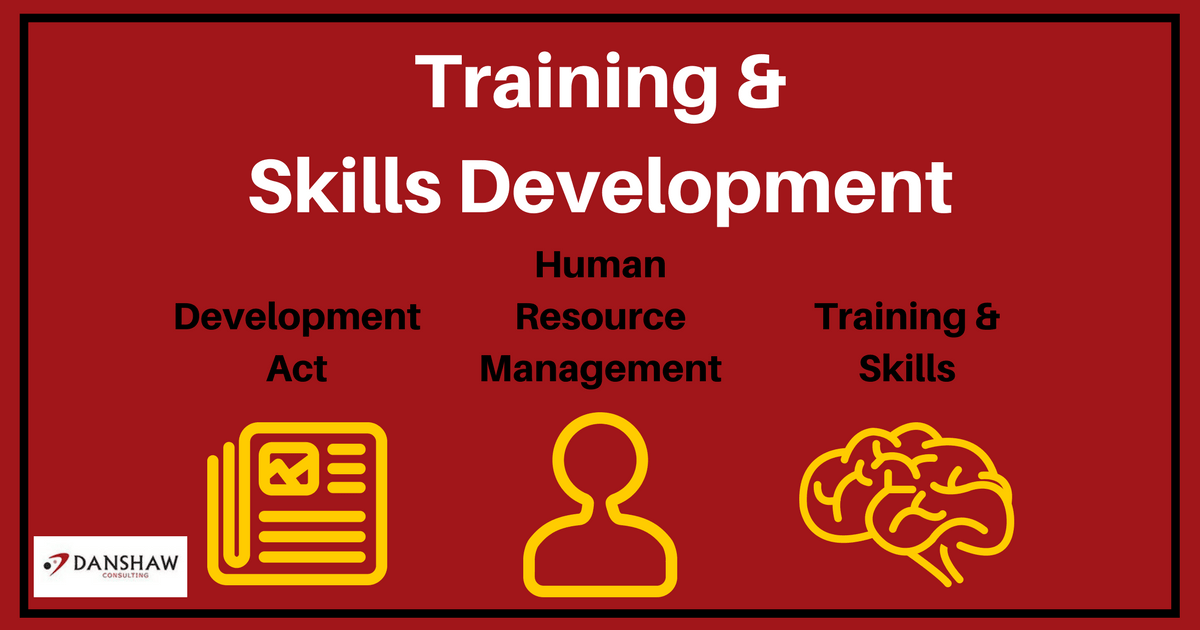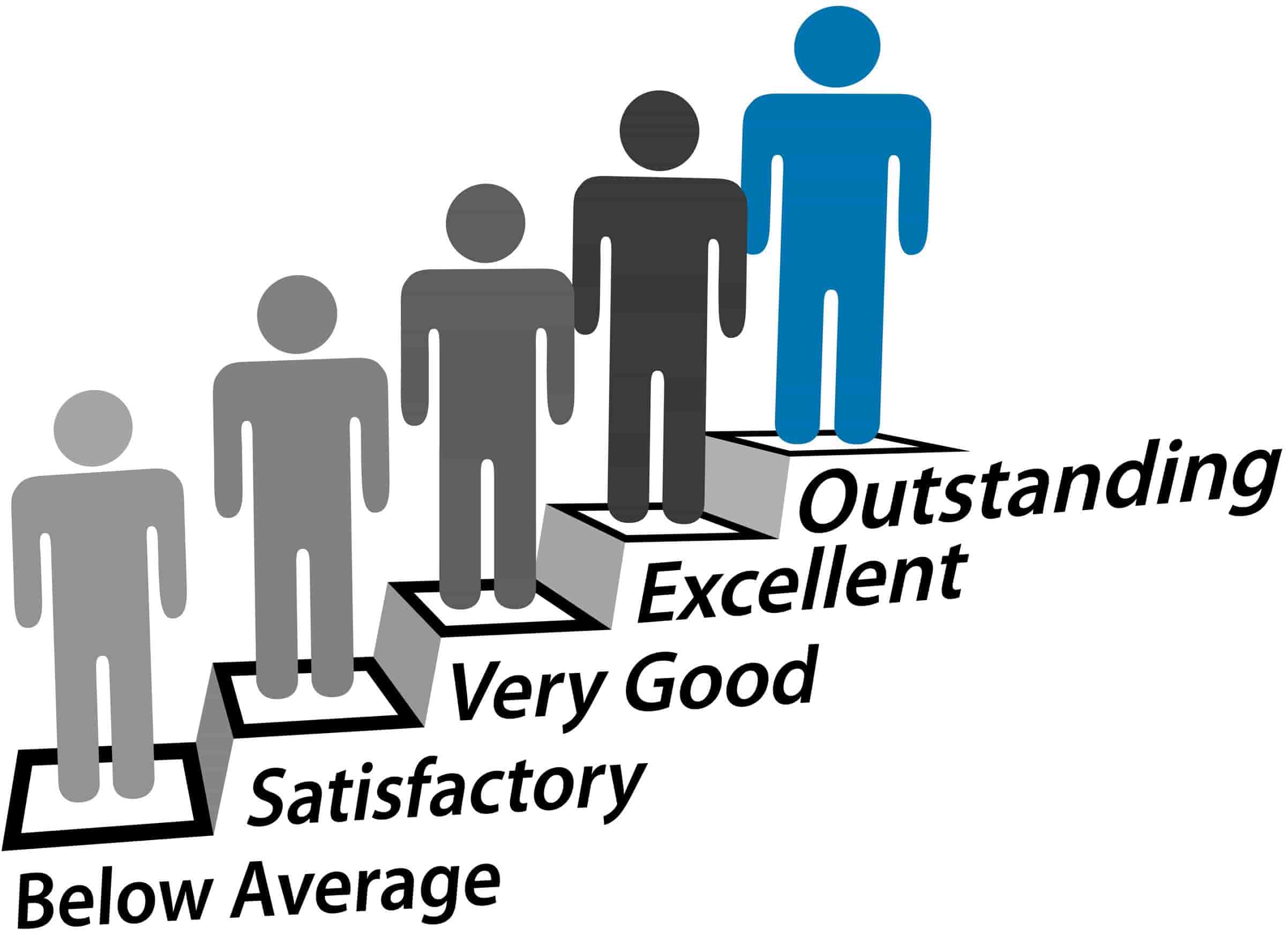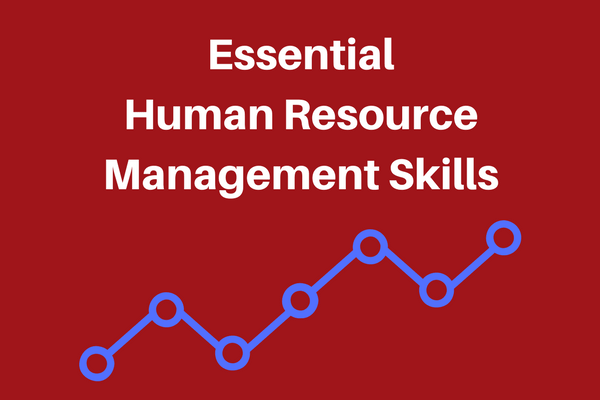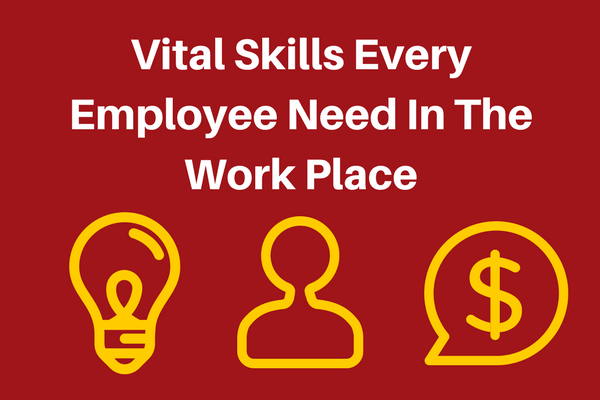Skills Development and Training For Your Business

Everything You Need To Know About Skills Development and Training in South Africa
 They say that the smartest people among us are those who adopt a positive attitude toward life-long learning.
They say that the smartest people among us are those who adopt a positive attitude toward life-long learning.
In other words, the smartest people are those who realize they will always have a lot to learn, and who spend their entire lives accumulating knowledge to improve their skills development process.
Learning is, then, a life-long process; there is never a point at which you can stop and say that you have learnt everything, or know enough (if you want to be one of the smartest people in the room, or a sought-after professional, that is).
Whether you are a manager at your company, in the human resource management department or just an employee, we all need some skills to improve our career and personal life.
To be more, we need to become more.
Are you a Small Business, Company or Large Organization looking for Skills Development Consulting or Training for your Employees?
Danshaw can help! Contact us for more information.
Each industry, and each company within that industry, will have a different approach to skills development.
Some companies will have in-house training opportunities and grants for further learning for exceptional employees.
Others will have minimum standards – i.e. a set of basic skills the company requires new hires to possess before they will put in the time and money required to develop those skills further.
Some businesses will require employees to undergo a series of tests and short courses throughout their tenure to ensure that their employees continue to develop the necessary skills to remain at the forefront of knowledge and the cutting edge of their field.
Whatever a company’s approach to skills development, you can bet your bottom dollar that skills development is a billion dollar industry vital to a company’s long-term growth and ultimate success.

The Basics – Skills Development in the South African Context Explained
In 1998 the Skills Development Act was rolled out in an effort to aid the further development of skills within the South African workforce by encouraging workplaces to become active learning environments and make provisions for ongoing education and skills development.
It was hoped that the Skills Development Act would help address the skills shortage the country as a whole was facing at the time.
This increased investment in skills development was intended to translate into greater returns on investment for employers, while simultaneously generating a more competent workforce with improved future employment prospects.
Through providing access to further training and education in a controlled environment, the Skills Development Act sought to empower employees while enticing employers to participate with promises of increased profit.
The Skills Development Act of 1998, and Skills Development Levy Act of 1999, set the bar for focussed skills development programs, and the Sector Education and Training Authorities (SETAs) were implemented to monitor skills development efforts and ensure that energies spent were in line with the overall Sector Skills Plans.

The Process in a Nutshell
All employers/companies who have an annual payroll in excess of R500 000 and who are registered with the South African Revenue Service (SARS) must also register with SARS to pay the skills development levy, totalling 1% of the value of the company’s monthly salary and wage expenditure.
All registered companies are then allocated a particular SETA based on the core business undertaking of the company (i.e. their primary sector of engagement in industry).
Companies also need to submit an Annual Training Report (ATR) and a Workplace Skills Plan (WSP) every year.
As of 2014, the deadline for submissions is 30 April.
By submitting the ATR and the WSP on time, companies are able to claim back a portion of their annual skills development levy contribution.
Also read our Human Resource Management Article
Mandatory, Discretionary and Pivotal Grants
Mandatory Grants are equal to 20% of the skills development levy paid by the employer where a Skills Development Facilitator completed an Annual Training Report and a Workplace Skills Plans, and submitted them on time.
The ATR details the training that has taken place, and the WSP details training that is planned for the coming reporting period.
Pivotal Grants (professional, vocational, technical and academic learning programmes) are training programmes that culminate in qualifications or partial qualifications recognized by the National Qualifications Framework (NQF).
These training programmes address priority, scarce and critical skills identified in the SETA Sector Skills Plan.
SETAs allocate a portion of the total percentage of discretionary grants towards PIVOTAL programmes to address critical and scarce skills within sectors.
Companies have to submit a PIVOTAL training plan in order to qualify for the grant.
Discretionary Grants are awarded by the SETA where training planned by the company aligns with the Sector Skills Plan.
In order to receive discretionary funding, companies must apply for discretionary grants following SETA specific guidelines.
Also read our 6 Employment Issues Every Business Face
Practical Implications
Training is a valuable tool whether it is institution-based or on-the-job.
The positive spin-offs of further training and skills development impact all areas and interests of a business with considerable long term benefits.
Therefore, using the avenues made available by the Skills Development Act, companies are able to facilitate sustainable training and skills development practices that benefit industry on a national level.
The following basics are key to sustainable skills development within a company:
The training ambassador in the company, such as the Training Manager or Skills Development Facilitator, must continuously gauge and assess the skills needs of the company, and whether these needs correspond with those identified in the Sector Skills Plan.
Skills audits help ensure that training is targeted and addresses a specific need, rather than training employees for training’s sake.
The company skills strategy should then directly address skills shortages that impact the business objective.
- Appoint a Training Committee to ensure that the development and execution of the company’s skills strategy is a collective effort. Where employers have more than 50 employees, a Training Committee is a must.
- Training providers and types of training interventions must be evaluated and measured against company needs. Although using accredited training providers is not compulsory in all circumstances, all training providers have to adhere to stringent guidelines and work according to recognised industry standards.
- Records must be kept up to date and should be complete. This includes updating and ensuring that the following are complete: the employment profile, training invoices, attendance registers, proof of expenditure and any other training related documentation, such as learnership agreements.
- Link training and development to other HR activities to ensure development of human resources does not only operate as an isolated occurrence.
- Liaise with the particular SETA to remain up to date on developments and to maximise return on investment.
It is easy to prioritize dealing with day-to-day operations, and crises that crop up on a day-to-day basis, and to completely forget to pay any attention to identifying and addressing skills shortages within a business.
Don’t be short-sighted.
Many day-to-day crises and associated problems can be overcome long-term by implementing a skills development program aimed at identifying causes of problems, and skills shortages which lead to crises in the long run.
Nip potential crises in the bud by identifying and addressing skills shortages early.
Are you a Small Business, Company or Large Organization looking for Skills Development Consulting or Training for your Employees?
Danshaw can help! Contact us for more information.
Human Resources Training and Skills Development Methods

It is the responsibility of the HR department to manage the training and development opportunities available to staff.
Sometimes staff may need to undergo additional training in order to ensure on-going compliance with new legislation (or the like).
Employees also need to keep up to date with the newest technologies that allow them to do their jobs to the best of their ability, thereby maintaining the company’s competitive edge.
There are a number of methods for both training and development and it is the responsibility of the HR department to facilitate/organize the appropriate opportunities for learning.
Training and Skills Development Methods may include:
-
Classroom-type Lectures:
A conventional method that most skilled workers will already be accustomed to, the classroom-type lecture method of training allows the HR department to provide an opportunity for training and development to a large number of staff members at once, at minimal cost.
This is because only one lecturer needs to be employed to teach a larger number of ‘students’.
Classroom-type lectures then constitute a ‘one-on-many’ approach to training and development.
Being purely theoretical – this may not be the best training and development method for teaching a new practical skill, but can be very helpful to educate people within the business for example to create awareness for Water Saving Tips.
-
Simulation Exercises:
The solution to teaching more hands-on, practical skills is organizing simulation exercises that allows staff to practice and put the newly acquired knowledge to use immediately (converting theoretical knowledge for practical application).
This method may become expensive as the training may need to be facilitated one-on-one, or may cost the company additional monies depending on the availability and cost of the equipment necessary to simulate the environment/activity.
E.g. If you are training your bank tellers in new hostage crisis protocols – you may choose to close the bank for a day in order to teach them the practical applications in a real-world setting and simulate a hostage crisis for them to respond to (this will however cost the company a day’s income).
In another scenario the company may pay employees overtime to undergo training in the bank after closing hours (the cost of the facilitator need also be factored in).
-
Outward Bound Training:
Usually thought of as a team-building method, Outward Bound Training necessitates taking a group of employees out of the work environment together and having them develop critical thinking skills/problem-solving skills etc. in the wilderness or a new locale.
Outward Bound Training may include things like company camping trips with schedules activities, obstacle courses for completion in teams, and/or survival training etc.
Outward Bound Training is often very expensive and (aside from functioning as a team-building activity and revealing a lot about the team members’ personalities and leadership qualities) the employees may struggle to carry what they have learnt in their Outward Bound Training over into the office environment.
Also Read our Performance & Job Grading Article
Skills Every Manager Should Working To Obtain

A plethora of research exists on managerial skills and competencies that are necessary for overall business success and at a glance, these skills overwhelmingly include abilities that relate to relationship management.
Not surprisingly so, it is skills such as communication skills, leadership, and conflict resolution that are most often sited rather than technical abilities and know-how.
Although a good manager needs a sound technical background, being an expert in a field does not necessarily guarantee that the person will be a competent manager of a team or department.
In practice, companies often fall into the trap of promoting star employees into management roles where their previous stellar performance starts to wane.
This is called the Peter Principle; employees are promoted into a role or level before they have acquired the necessary skills and cannot meet the demands of their new role.
The pressure a managerial role places on an individual can be so overwhelming that the person loses complete confidence in his or her abilities and the company experiences a break in the management chain affecting a large part, if not the entire, organisation.
Large companies spend a significant amount of time and resources in identifying and developing managers and often have extensive programs in place that ensure a continuous feed of capable managers on all levels.
They ensure that company values and know-how are passed on from one generation to the next carrying the organisation from strength to strength.
However, not all companies have the resources to build management capacity to that extent and all too often smaller companies put employees into managerial roles by default either because of their length of service or expertise.

Fortunately, there are ways to bridge the transition from technician or operator to manager starting with focusing on what the company expects from that role and the skills required to perform that role.
Focused efforts such as coaching, mentoring and in-basket exercises are ideal mechanisms whereby senior management can groom the new managers-to-be.
External training courses and online learning resources provide further fine-tuning of required competencies and help new managers pay attention to the skills they need to develop.
Listed below are some of basic skills that make good managers.
Beyond technical, business, financial and administrative skills, these are the primary skills that enable managers to manage others and with experience and conscious effort to develop these skills, produce great managers.
1. Communication
Managers are able to communicate effectively on many levels including communicating with their team, co-managers, superiors and external parties.
They know what they are communicating and how to convey a clear message and make sure that the intended message is understood correctly.
Listening is a crucial skill as manager; it is not just about telling but gathering information that enables you to make well-informed decisions.
2. Problem-solving
As a manager, the problems may seem never-ending and solving it means being able to identify problems in the first place, gathering information about the cause and searching for alternatives and solutions.
A good manager does not only mean being able to identify a problem, but presenting his/her superior with a solution.
3. Delegating
A manager needs to pay attention to dividing the work to be done in manageable chunks to the right people.
This requires a clear understanding of the strengths and weaknesses of the individuals in your team.
4. Interpersonal Skills And Team Building
Managers are responsible for their team to meet deadlines and accomplish goals which brings together a whole set of skills which fundamentally rests on the ability to interact with all the role players in a managers network in such manner that yields results.
A good manager is able to communicate the goals, listen to individual contributions, pose problems as challenges, motivate and direct staff while ensuring the company strategy is clear to his team.
They foster good relationships by being able to empathise, relate and involve staff in decision-making and problem-solving while maintaining a professional composure.
Understanding team dynamics, individual abilities and providing opportunities for team members to develop their skills enables a manager to create, build and maintain a department or team that works together as a cohesive unit.
5. Time Management And Focus
Managers need to deal with a variety of situations, tasks, problems and responsibilities on a daily basis and being a good manager of others means being able to manage oneself as well.
It means learning to prioritize, organize and addressing important and urgent matters with sufficient focus both in terms of your teams operations and your own daily tasks as an employee.
As with any skill, these skills need to be taught, learned and practiced.
Some people will master a particular skill better and quicker than others; however the key is that the necessary time and attention is given to the development of a manager from both the company and individuals side to ensure that the word Manager implies more than just a title.
Essential Human Resource Management skills

What makes a good HR Manager? In order to be able to facilitate the training of others, an HR Manager needs to possess a certain set of skills themselves.
Over the years we’ve learnt what works and what doesn’t, and we’re excited to be sharing the following keys to success in HR Management with you:
-
Be The Master Organizer In Your Company
Great organizers make great HR managers because they are typically obsessive when it comes to organization, or rather organizing, and admin – and you need your Human Resource manager to be an organizer of note.
The ideal HR manager needs to not only be able to organize people and activities, but manage their own time well.
-
Finding The Right Balance To Multi-task Effectively
Speaking of time-management skills; the ideal HR manager is a human-octopus hybrid that has 8 arms.
Not possible?
Well the second best HR manager would be someone with only two arms who is highly skilled and efficient at multi-tasking; juggling, balancing and switching between different projects and priorities on the fly, while ensuring that each project is completed to company standard.
-
Be Prepared To Make Tough Decisions
As an HR manager you’re going to be determining the course of people’s lives.
In some instances it’s going to be your decision whether or not a particular action by a supervisor constitutes sexual harassment.
You might be responsible for deciding whether or not somebody loses their job; and the world is so rarely black and white.
The ideal HR manager is comfortable with navigating the shades of grey and calling it as they see it.
-
Know Your Way Around Negotiating
As an HR manager you’re going to need to get good at negotiation, stat.
It is your responsibility to get in there and close the deal, finding a middle ground that ensures both parties leave the table feeling like they’ve drawn the long end of the stick – quite a feat on the best of days.
-
Got A Secret, Can You Keep It?
As an HR manager you need to be able to take confidential information to the grave.
You also need to know when keeping information to yourself would be considered, or endorses, unethical behaviour.
This relates back to navigating the areas of business practice that are not so black and white – when do you report unethical activity, and when do you respect an agreement upon confidentiality?
Also read our Industrial Relations Article
Employee skills You Need For A Solid Career Foundation

No matter in which sector you’re operating, there are a set of universal skills any employee should have in order to thrive in the business environment.
While certain job descriptions and circumstances will privilege some of these skills and make others seems of little benefit, honing these skills will help make you a more employable person over-all.
Some may even help you as an interviewer to weed out those employees who may have great resumes and qualifications but still make a terrible employee.
Top Five Universal Skills Every Employee Should Have:
-
Time-management
The ability to time-manage is paramount to success in every possible field.
Not only are employees who know how to time-manage more likely to exceed expectations in terms of deadlines and take on more tasks than those who are unable to time-manage properly.
These employees are also more likely to be self-starters, in other words, innovators who don’t require micro-management but can motivate and manage themselves.
-
Team player
Even if you’re working alone from home, you still need to have the ability to at least play the part of a team player.
Just because you’re naturally a bit more of a lone wolf doesn’t mean you can’t learn the fundamentals of effective teamwork and play the game accordingly.
Whether this means practicing patience, learning to lead or learning to follow; an employee who is incapable of working in a team is a liability to a business.
They will have little room for promotion in many sectors; as management teams and those in positions of authority often need to maintain good interpersonal relationships with, and work with, a number of people from other departments who are on a similar level.
-
Basic Mathematics
Whether you’re working in the food service industry and need to count change, or whether you’re interning at a high-power law firm and have been passed the task of ordering the office’s stationery; some basic mathematical literacy is required.
Having a working knowledge of basic statistics may also come in handy in most fields one day.
If you are exceptionally skilled at math; use this to your advantage.
Finding a way for your company to save money is always a sure-fire way to get noticed.
-
Customer Service
If you’re in the medical field they call it ‘bedside manner’, if you’re working in advertising they call it client relations; the fact remains, if you can’t keep a customer happy or maintain a good relationship with a client, you’re a liability to your employer.
The ability to communicate clearly, concisely, and confidently with clients while making the client feel like they are in the right, is an invaluable asset to you as individual and to the company that employs you.
Remember that, no matter what work you’re doing, client retention is a part of your job description – never be the reason your employer loses a client.
-
Computer literacy
In today’s day and age (though we may be sick of hearing it) you really need to be computer literate if you want to get a job.
Even if you’re working the drive-through window at McDonalds these days, it’s all done on a computer.
Whether you’re only Microsoft Office proficient or can type a ridiculous amount of words per minute, always put your degree of computer literacy on your CV, especially if it is noteworthy.
Companies may view exceptional skill on a computer as an opportunity for them to create unique opportunities for you within the company.
Such opportunities may include lateral moves that positively impact your pay grade, or even promotion in the future.

Conclusion
It is important to identify your foundational non-negotiables. Which skills do you need all hires to have already in order to best train them, and offer them opportunities for further skills development?
Skills development deserves a privileged position on every company’s to-do list.
By prioritizing skills development a company is able to attract in-demand employees, sustain growth, compete in their given industry, and even qualify for government funding to help offset the cost.
While all skills can be taught and acquired, hiring somebody who possess certain skills already, and just helping them develop those skills, can save your company time and money.
The key to a successful skills development program is hiring the best HR Manager you can find, and letting them impart their wisdom to your workforce, and hire training facilitators as needed.
Investing in skills development infrastructure and resources (both human and otherwise) is ultimately an investment in your company’s long-term financial and overall success.
Focus on skills development and focus on growth today.
Are you a Small Business, Company or Large Organization looking for Skills Development Consulting or Training for your Employees?
Danshaw can help! Contact us for more information.










